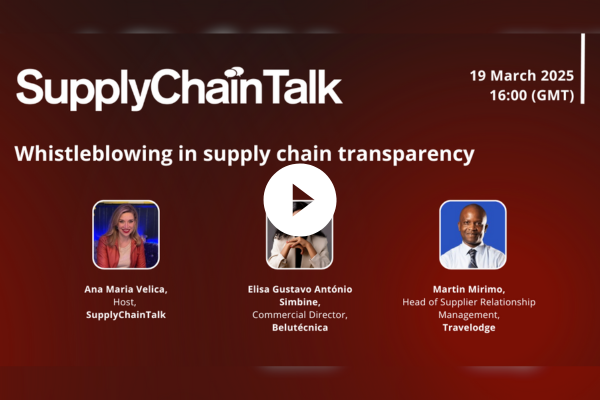Addressing Scope 3 emissions

John Spear at epi Consulting and Nicola Grande at Swisscom explain why supplier engagement is essential for Scope 3 emissions reduction
Fighting climate change requires tackling emissions from all sources. But not all sources are equal. Scopes 1 and 2 – those that correspond to emissions directly under the operational control of a company – often account for a relatively small proportion of a company’s carbon footprint.
Scope 3, which describes emissions originating across the entire value chain, accounts for the rest. In some industries, Scope 3 can account for up to 90 percent of a company’s carbon footprint. And given that supply chains can be long, complex and international, engaging with suppliers is crucial to cutting these greenhouse gas emissions.
Supplier engagement matters
Companies cannot simply command their entire supply chain to become sustainable. For one thing, they don’t always know exactly who all their suppliers and sub-suppliers are and how they work. Supply chains can be incredibly complicated to the point of being almost opaque. That makes identifying where the emissions are coming from tough.
A second hurdle is that suppliers might not know how to be more sustainable. Cutting emissions can involve minor adjustments, but it can also involve introducing long term initiatives and substantial change in the way companies work. To truly accelerate climate action in the supply chain, companies must engage suppliers on the need for action and support the learning process and know-how of lower-tier suppliers.
Through engaging with suppliers, companies can help them build or boost any lacking knowledge or skills so that they can start adopting greener ways of working. Companies can also explain why sustainability matters and what they themselves are attempting to do, and so create some alignment in respect of aims.
It’s vital that suppliers don’t see sustainability as a pointless exercise that they’ve been forced to do. The end result will most likely be failure of the programme, or worse, the supplier going backwards through lost motivation or misallocation of resources.
Face up to systemic issues
Companies that begin this process of engaging suppliers will frequently encounter systemic social problems, from long working hours to low wages. These often reflect typical local conditions in the parts of the world where those suppliers operate.
In certain Asian countries, for example, ESG regulation and reporting may be different or non-existent, while production methods will have been shaped by local and social contexts. These methods will inform everything from energy use to labour practices. Respecting the origins of these conventions and working together to navigate them is key.
Equally, suppliers also face infrastructure challenges hindering environmental protection and decarbonisation efforts: they are often dependent on the local energy mix (e.g. coal-fired power on the local grid), may rely on energy-consuming heavy infrastructure in their factories that is difficult to update, and often depend on the innovation level of new technology in the country, as well as on the local transportation modes available to them.
Specific supplier development programs that reach beyond Tier 1 can make a big difference. By giving suppliers not just the knowledge and skills but the tools and incentives to go green, companies can help uplift an entire industry.
Putting in place robust and fair assessments, creating a system of support, and defining clear sustainability goals can become an engine for real, meaningful and fast improvement. Outlining the business case for sustainability – adopting solar power can lead to huge cost savings over several years, for example – can be really effective.
There will be challenges
As we’ve alluded to, one major challenge that companies face is limited visibility beyond their direct suppliers. For a fuller picture to come into view, companies will need to undertake thorough audits and risk evaluations.
But even when they identify risks, cultural and geographic differences can make action difficult. Companies in one part of the world can’t expect to go to another and begin telling local businesses that what they’re doing is in some way wrong, and to make arbitrary changes on their behalf.
Again, relationships and clear communication that always refers back to the end goal of any action is essential to engage multiple stakeholders, such as direct suppliers, sub-suppliers and industry peers.
Flexibility will of course be needed. Smaller manufacturers, especially in the countries of the Global South, might lack the motivation or the resources to start up green initiatives. The seeds of a culture of development will need to be planted, and patience may be needed while those suppliers adjust. Companies can really help by offering relevant and regular guidance and sharing best practices.
However, it’s important to recognise that companies in these regions cannot simply adopt Western solutions to environmental challenges; they need to develop their own solutions that fit their local contexts. And their patience will be rewarded as suppliers who improve their environmental practices through energy-saving technologies, reduced resource consumption, and adherence to sustainability standards will see a decrease in costs overall.
This, combined with better working conditions, fewer accidents, and increased productivity, enables both companies and their suppliers to operate at peak efficiency.
It pays to go green
To succeed long-term, supplier engagement must clearly demonstrate the full spectrum of benefits of sustainability. Programs have to link business goals and sustainability goals: that’s what, ultimately, will move hesitant suppliers from scepticism to full support for your initiative.
By showing clearly that climate-friendly practices reliably save money and improve efficiency, businesses give their suppliers the strongest possible reason to act. And if they do act, then Scope 3 will start to seem less than an overwhelming obligation, and more like an opportunity to build a more resilient supply chain, strengthen relationships, save money, boost your brand and retain and attract talent: it’s been widely reported that younger millennials and Gen Zers care deeply about the sustainability of the companies they work for or products they buy.
Although the journey demands commitment, creativity, and patience, the benefits of a greener approach are significant and make it a worthwhile business goal.
John Spear is Director at epi Consulting; Nicola Grande is Sustainable Procurement Manager a Swisscom
Main image courtesy of iStockPhoto.com and GroblerduPreez

Business Reporter Team
Most Viewed
Winston House, 3rd Floor, Units 306-309, 2-4 Dollis Park, London, N3 1HF
23-29 Hendon Lane, London, N3 1RT
020 8349 4363
© 2025, Lyonsdown Limited. Business Reporter® is a registered trademark of Lyonsdown Ltd. VAT registration number: 830519543





